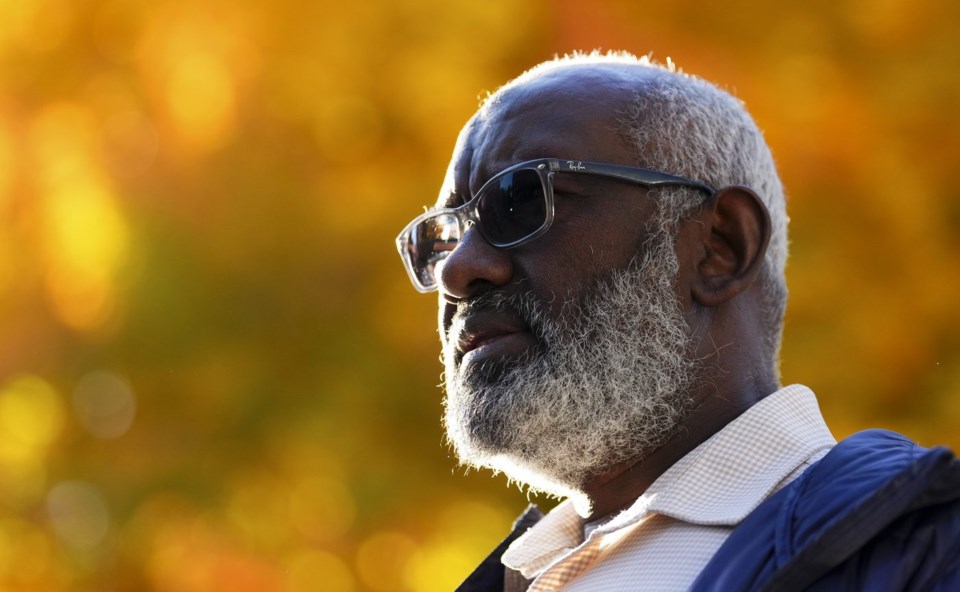OTTAWA — Fifteen years after filing a lawsuit against the Canadian government over his detention in Sudan, Abousfian Abdelrazik is getting his day in court.
An eight-week civil trial that began Monday in Federal Court is revisiting events that unfolded two decades ago against a backdrop of heightened vigilance because of the threat of extremism.
Abdelrazik is suing for $27 million over his ordeal abroad, claiming Ottawa arranged for his arbitrary imprisonment, encouraged his detention by Sudanese authorities and actively obstructed his repatriation to Canada for several years.
The suit, filed in 2009 and amended in 2017, also names Lawrence Cannon, the Conservative foreign affairs minister from 2008 to 2011.
Abdelrazik, 62, denies involvement in terrorism.
Born in Sudan, Abdelrazik attained refugee status in 1990 after arriving in Canada and later became a Canadian citizen. He now lives in Montreal.
He was arrested during a 2003 visit to his native country to see his ailing mother.
In custody, Abdelrazik was interrogated by the Canadian Security Intelligence Service about suspected extremist links. He says he was tortured by Sudanese intelligence officials during two periods of detention.
He returned to Canada in 2009 after a judge ruled Ottawa breached his constitutional rights by refusing to give him an emergency passport.
"It is an extraordinary case," Abdelrazik's lawyer, Paul Champ, told the court in an opening statement Monday.
"It's a case about a Canadian citizen who, for more than a decade, had almost every one of his rights and freedoms protected by the Charter violated or infringed in some way."
Government lawyers want Justice Patrick Gleeson to dismiss the claim.
"The evidence will show that Canada did not send Mr. Abdelrazik to Sudan," federal lawyer Andrew Gibbs told the court Monday.
"Canada did not arrest him. Canada did not urge Sudan to keep him in detention, and Canada did not mistreat or torture him, or create a risk that these things might happen."
Abdelrazik, who is scheduled to testify for several days, recalled for the court being questioned by the RCMP in Montreal in October 2000 about Ahmed Ressam, a former acquaintance who had been arrested in December 1999.
Ressam was found guilty in April 2001 on nine criminal counts stemming from a plot to detonate explosives at the Los Angeles International Airport during millennium celebrations.
Abdelrazik also spoke of visits from CSIS officers, including one the evening of Sept. 11, 2001, just after the infamous terrorist attacks on New York and Washington.
"They said, 'Do you know somebody planning to do the same thing in Canada?' I say, 'No, I don't.'"
The civil trial was set to begin in 2018, but was adjourned pending a review of emails, memos and other documentation related to the case under the Canada Evidence Act.
"It is shameful that this case took 15 years to get to trial as the Canadian government tried everything to delay and derail it," Champ told The Canadian Press.
Among the high-profile witnesses expected to testify are Cannon; Maxime Bernier, who preceded him as foreign minister; former national security adviser Margaret Bloodworth; recently departed CSIS director David Vigneault; and former senator Mobina Jaffer.
The Crown recently lost a bid to have several current and former security officials testify behind closed doors in the lawsuit.
Gleeson rejected a motion from government lawyers to exclude the public and media from the courtroom during the testimony to prevent inadvertent disclosure of sensitive secrets.
Champ argues the evidentiary record overwhelmingly points to CSIS working with the U.S. Central Intelligence Agency to arrange for Abdelrazik's arrest by the Sudanese authorities.
In its amended statement of defence, the government says CSIS had reasonable grounds to surmise Abdelrazik "constituted a threat to the security of Canada by virtue of suspected links to international terrorism."
However, it denies Canada shared information with Sudan about Abdelrazik before his detention, or that CSIS requested, prompted or suggested that Sudanese authorities arrest and hold him.
One of the documents disclosed in the case, a secret July 2006 memo to Kevin Lynch, clerk of the Privy Council at the time, says that given the past interest American authorities have displayed in Abdelrazik's whereabouts, "we will need to demonstrate to the U.S. that we take all aspects of this security case seriously."
Champ said the case is a horrible example of how intelligence agencies can destroy a person's life and violate their freedoms, all in the shadows and with impunity.
"Mr. Abdelrazik's case should be important to every Canadian because we need the courts to forcefully condemn the government when it violates the rights and freedoms of a citizen based on suspicions alone."
This report by The Canadian Press was first published Oct. 21, 2024.
Jim Bronskill, The Canadian Press



